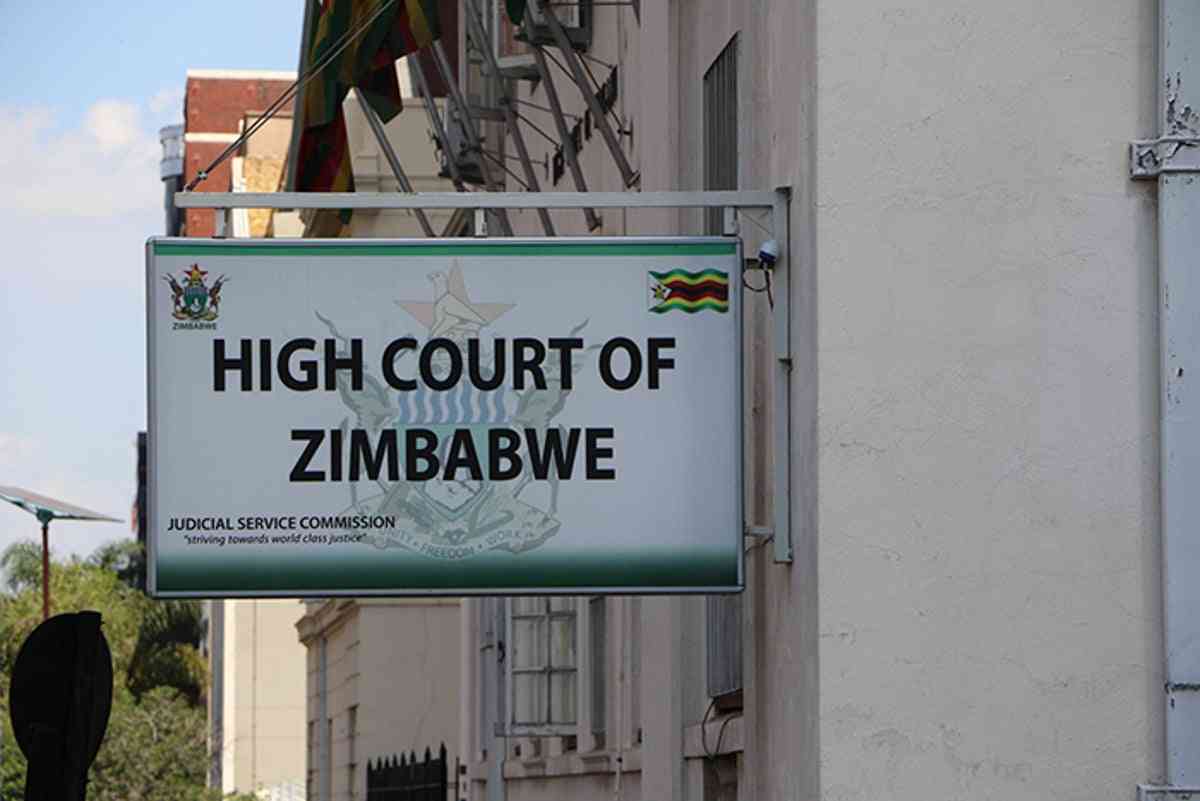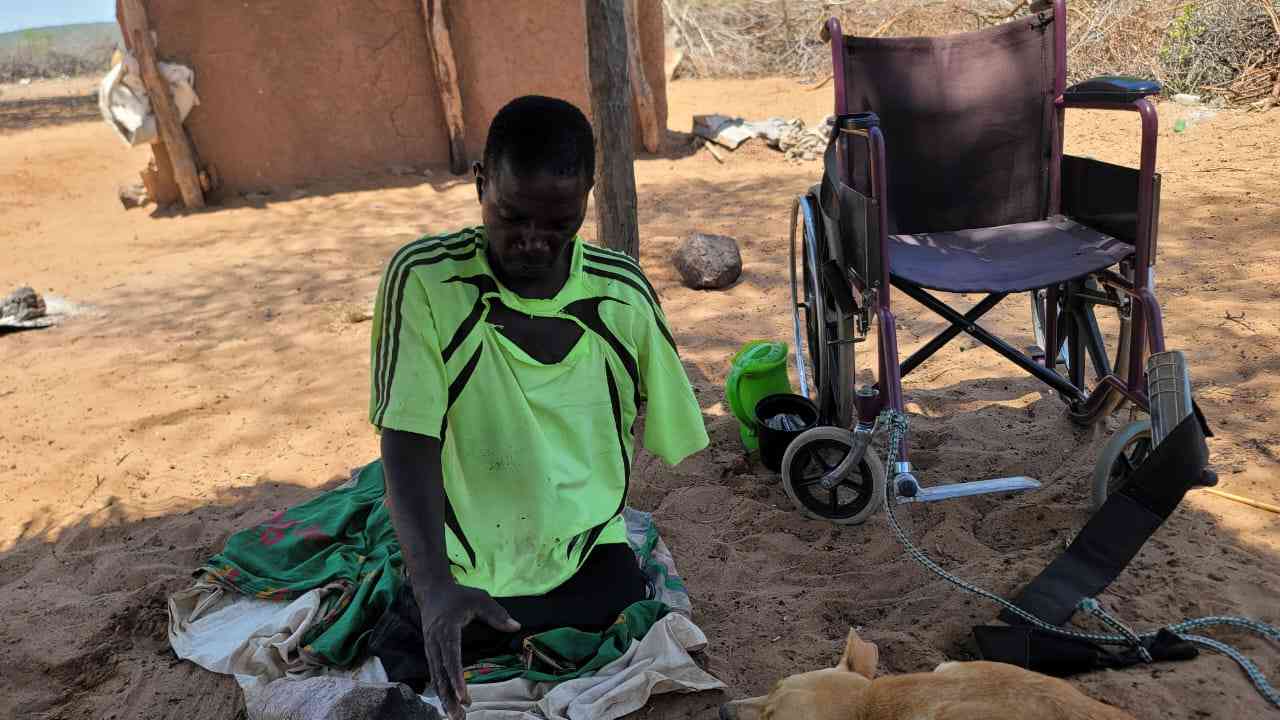
THE Termination of Pregnancy Act has come under scrutiny with the High Court outlawing a section of the law after the Women in Law in Southern Africa (WLSA) pointed out that it excluded termination of pregnancies conceived in child marriages.
WLSA and Talent Forget, represented by Tendai Biti, successfully sued the Health and Child Care minister, Parliament of Zimbabwe and Attorney-General.
Termination of pregnancy in Zimbabwe is controlled by statute.
The lawsuit sought to persuade the court to outlaw the definition of unlawful intercourse which is contained in section 2(1) of the Termination of Pregnancy Act to allow children below the age of 18 and married women who are victims of marital rape to have access to legal abortion.
WLSA submitted that the application will protect children in child marriages and also victims of marital rape since it was criminalised should have access to legal abortion.
The respondents did not oppose the lawsuit.
It was also submitted that the children in Zimbabwe hold a special position and decisive place in the jurisprudence of Zimbabwe and the Constitution of Zimbabwe in section 81 protects the rights of children.
The section provides that every child, under the age of 18, has the right to equal treatment before the law, including the right to be heard, to be given a name and family name, to be protected from economic and sexual exploitation, from child labour and from maltreatment, neglect or any form of abuse, to education and healthcare services, nutrition and shelter.
- Fresh land invasions hit Whitecliff
- Pomona cash row escalates
- Border Timbers targets European markets
- SA name strong A side for Zim tour
Keep Reading
It was submitted that legal abortion in Zimbabwe is governed by the Act which provides that termination of a pregnancy shall be on the basis that the continuation of the pregnancy endangers the life of the woman.
Legal abortion is also allowed when there is a serious risk that the child to be born will suffer from a physical or mental defects of a serious nature.
The law also defines unlawful intercourse as, rape other than rape within a marriage and sexual intercourse within a prohibited degree or relationship other than sexual intercourse.
“The definition of unlawful intercourse excludes unlawful and unconstitutional intercourse giving rise to pregnancy of a child below the age of 18.
“To the extent that the age of sexual consent is 18, it therefore means that any intercourse with a child is unlawful and must be included as unlawful intercourse for the purposes of s 2(1) of the Act. Also, unlawful intercourse must include marital rape or rape within a marriage,” WLSA submitted.
The association also submitted that failure to include in the definition of unlawful pregnancy of a minor, amounts to a breach of the Constitution which protect the rights of children.
“Allowing children to have pregnancies without an option of safe legal abortion also amounts to torture, cruel and degrading treatment in breach s 53 of the Constitution of Zimbabwe.
“Teenage pregnancies and failure to allow legally safe abortions, is a breach of the right to human dignity protected under s 51 of the Constitution of Zimbabwe,” the organisation argued.
It further argued the section was in breach of section 56(1) of the Constitution in that it unlawfully discriminates between different categories of unlawful intercourse by omitting illegal and unlawful intercourse with a minor and rape within a marriage.
Zimbabwe has also ratified the 1990 Convention on the Rights of the Child whose Article 2 requires third parties to take all appropriate measures to ensure that the child is protected against all forms of discrimination or punishment.
“Teenage pregnancies are a form of abuse crying out for protection. Availing children the right to abort is a form of protecting children consistent with the Constitution. The right of children to education is protected in s 21(1) of the Constitution.
“Teenage pregnancies and child marriages break the cycle of education and sentences children, particularly girls to a cyclical life of poverty. The girl child’s right to dignity is adversely affected by teenage pregnancy,” the organisation said.
In the ruling, High Court judge Justice Maxwell Takuva said teenage pregnancies were not in the best interests of children, therefore, the law as it stood in the Termination of Pregnancy Act which denied pregnant children the right to abortion is not in the children’s best interest and, therefore, it is an infringement of s 81(2) of the Constitution of Zimbabwe.
“The court accepted the abhorrence and unlawfulness of any form of sex with a minor. This is because young persons lack understanding of sexual behaviour, the context of normal sexual relationships and knowledge of the consequences of sexual intercourse.
“In view of this, any sexual intercourse with a minor, is, therefore, unconstitutional and therefore any pregnancy arising from such sex has to be treated as unlawful intercourse for the purpose of s 2(1) of the Act.
“Once it is accepted that the age of sexual consent consistent with s 81 of the Constitution is 18, it becomes clear that any sexual act with a minor and indeed any pregnancy arising therefrom, is unlawful and illegal. Subjecting children to child pregnancies without a right to safe abortion is abuse and torture in violation of s 53 of the Constitution of Zimbabwe.”
He said child sex exposed children to the risk of contracting HIV and Aids or cervical cancer.
“Being young is a protected human right on its own. The challenge of delivering children is a major human rights issue. Adolescent pregnancies; adolescent births and the foreseeable adolescent abortions in Zimbabwe, breach the rights of children protected by s 81(e) and (f) of the Constitution of Zimbabwe.
“Section 81(e) demands that children should be protected from economic and sexual exploitation, from child labour and from maltreatment, neglect or any form of abuse.
“There is no doubt that it is torture, cruel and degrading treatment for a child to carry another child, for a child to give birth to another child or for a child to be forced to illegally abort because of cruel circumstances. Child sex exposes children to pregnancy and the risk of contracting HIV and Aids.”
Justice Takuva said pregnancy in child marriages was a result of unlawful intercourse which should be included in the definition of “unlawful intercourse” in s 2(1).
“Unlawful intercourse means rape including marital rape, sexual intercourse with a minor and sexual intercourse within a prohibited relationship other than sexual intercourse with the persons hereto referred to in para i or j of subsection 75 of the Criminal Code.
“It is ordered that, section 2(1) of the Termination of Pregnancy Act [Chapter 15:10] be and is hereby declared unconstitutional and invalid and there is no order as to costs,” Justice Takuva ruled.










